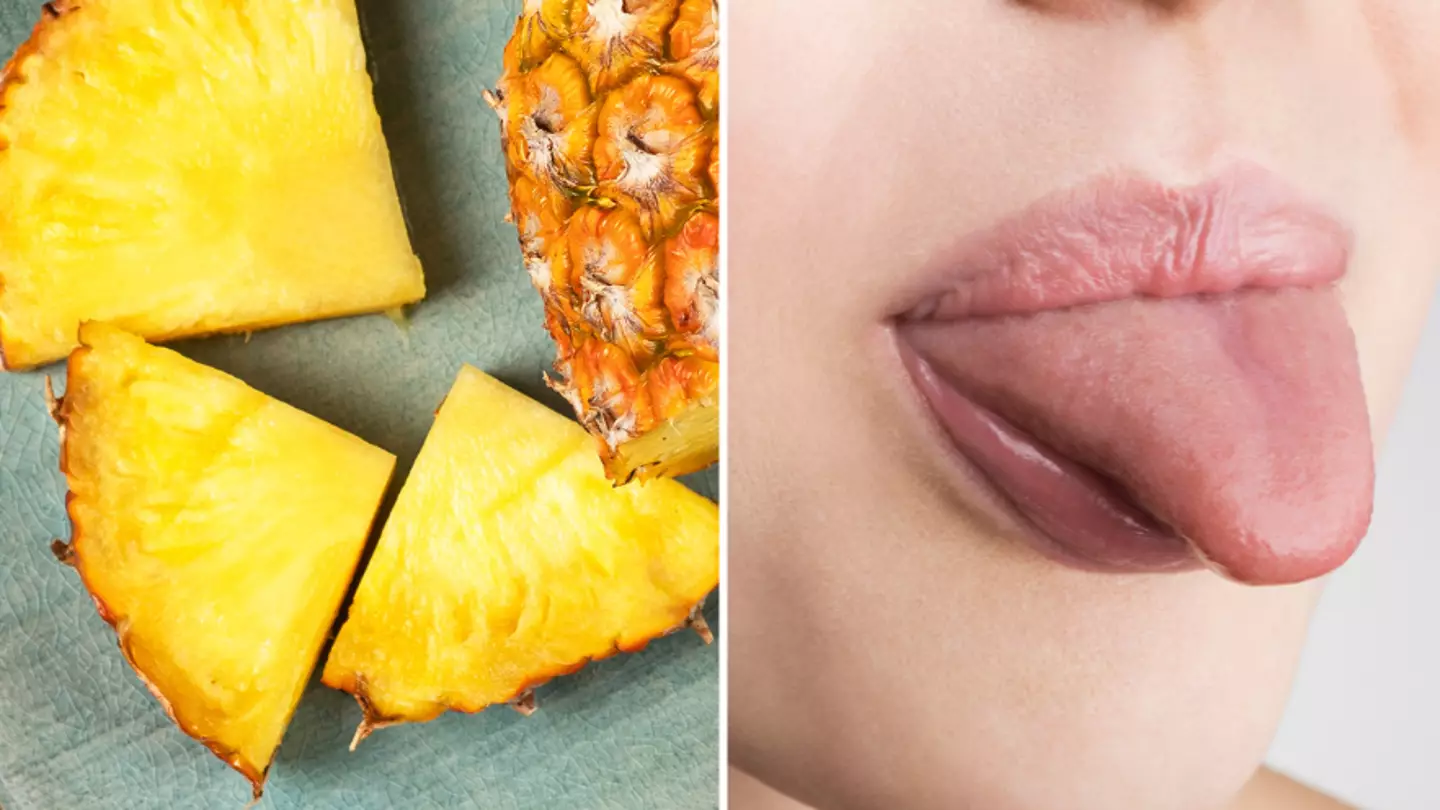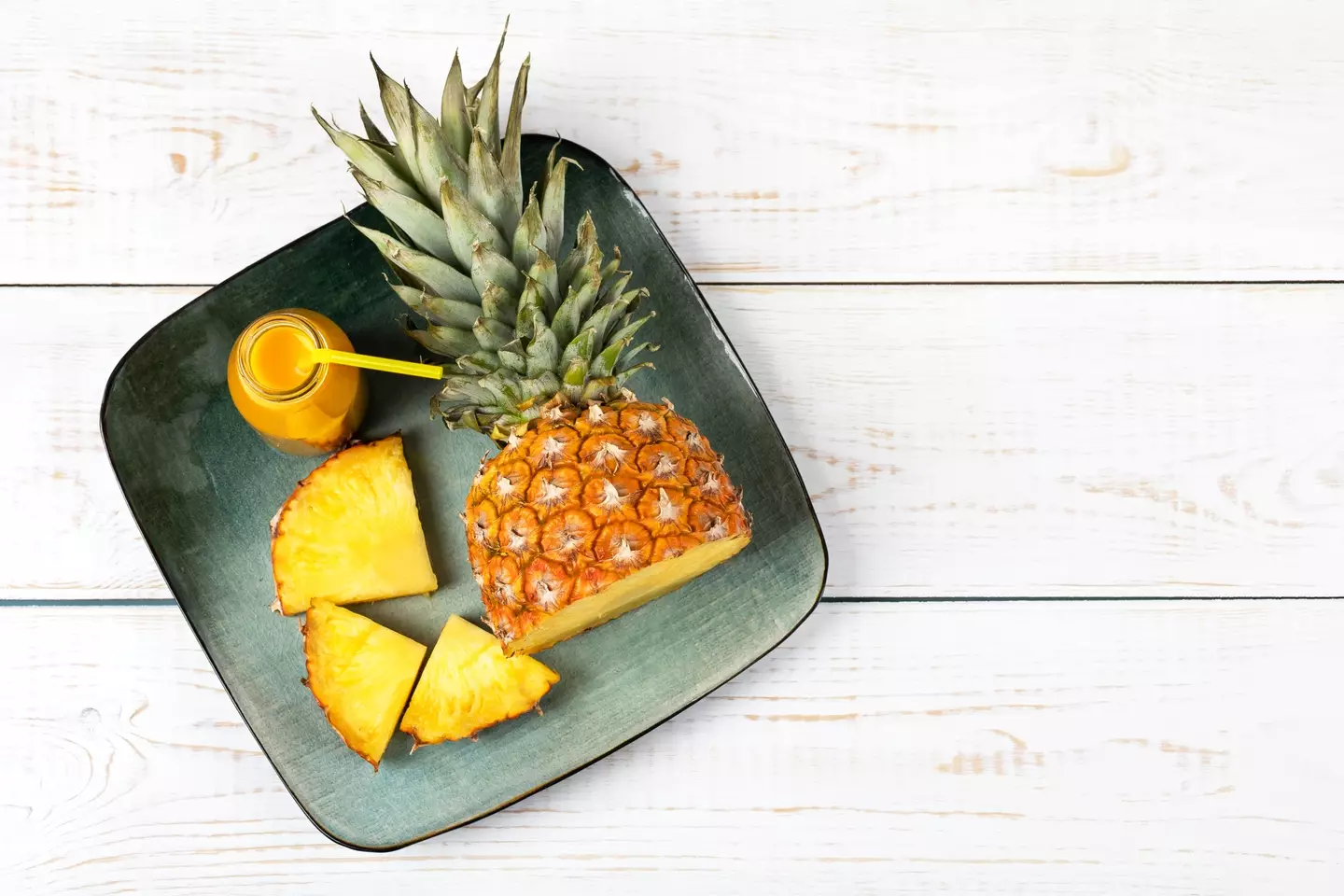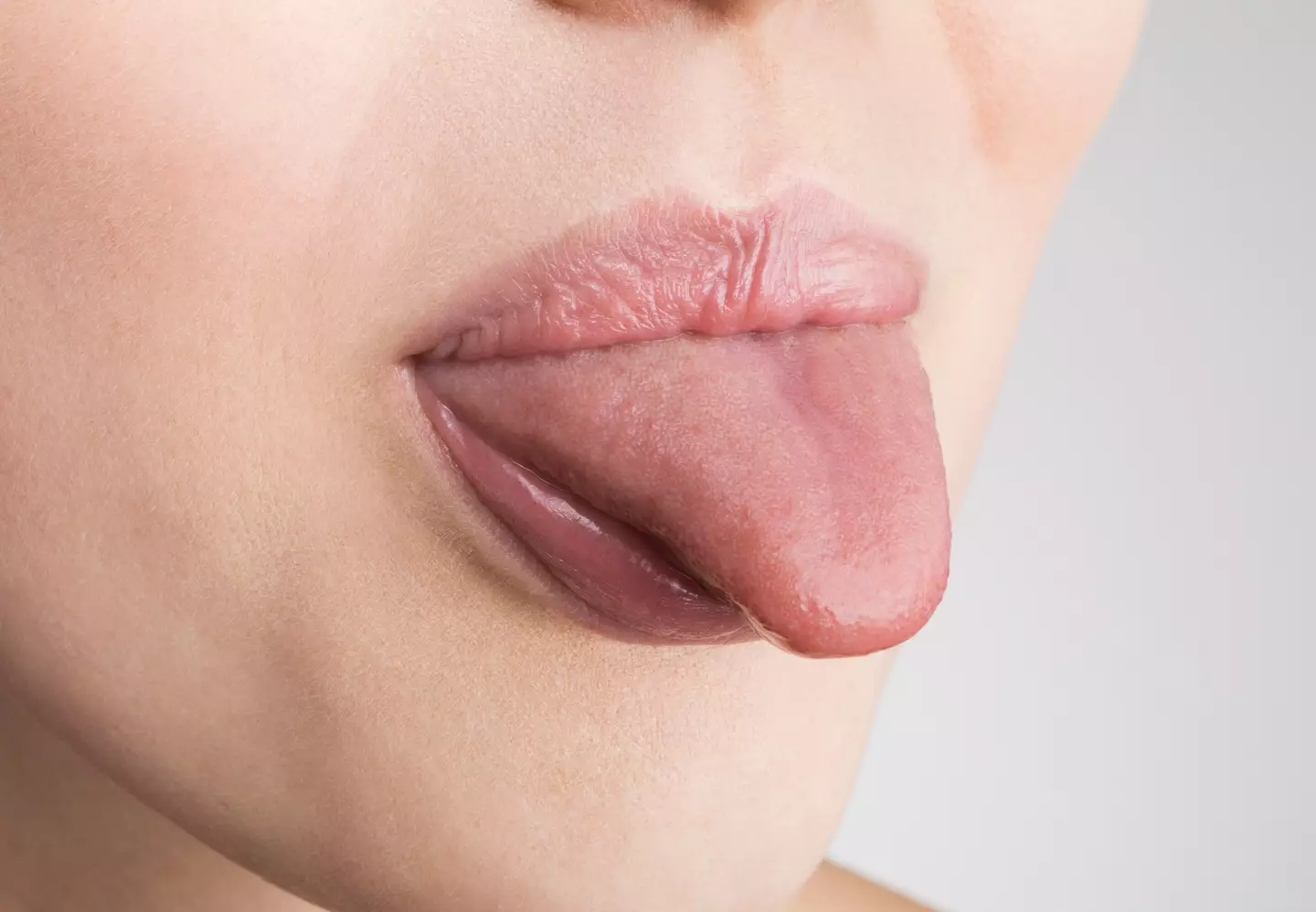
Pineapples are popular choice when it comes to people's favourite fruits.
From Pina Coladas and tropical smoothies, to some proper sorbet and even Spongebob Squarepants' gaff - it's clear pineapples are definitely up there in people's top five when it comes to their five-a-day.
However, if you've ever eaten some fresh pineapple, you may notice a tingling sensation on your tongue when doing so and there's actually a pretty disturbing reason as to why that happens.

One science buff took to TikTok to share a little more about the bizarre phenomenon.
Advert
The content creator, who goes by SF Microscopy online, gave viewers an extremely up-close-and-personal look into the 'microcosmos' within a pineapple.
In the clip, the expert picked apart tiny chunks of a pineapple before analysing them under a microscope and the results are, quite honestly, creepy as hell.
The voiceover begins: "Why do our mouths tingle after eating pineapple?"
Going straight into the big reveal, the microscope maestro went on to explain just why so many of us feel that tingly sensation whenever we bite into the flesh of the spiky-haired produce.
Advert
And the reason? Brace yourself...

Pineapple needles.
Nope, not the kind you get tattooed or injected with - it's actually way weirder.
Advert
The TikToker continued: "It's cause we are getting stabbed by 1000s of tiny needles called raphides.
"These crystals of calcium oxalate poke holes in your cell membranes causing irritation!"
These needles contain insoluble crystals, which are made of calcium oxalate, McGill University explains.
A theory about raphides and their herbivore defence mechanisms is that if the plant is damaged, sap or saliva will trigger the expulsion of these needles, which can then prick the lining of the 'predator's' (AKA us humans) oral cavity and cause irritation.
And it's clear pineapple-lovers couldn't wait to share their reactions to the revelation with one TikTok user vowing they would 'never eat pineapple again'.
Advert
"You know the fruits good when it starts fighting back," joked a second while a third revealed: "It always feel so raw afterwards, this makes so much sense."
A fourth chimed in: "My mouth be sore as hell after going crazy on them pineapples."
Another praised: "Thank you... never knew tropical fruit had defence mechanisms... very interesting."
That's definitely one way to view it..
Advert
And a final TikTok user pointed out the fact we all would probably rather remain ignorant to, writing: "When we eat the pineapple, the pineapple eats us."
Petition to start calling it 'painapple' anyone?
Featured Image Credit: Getty Stock ImagesTopics: Life, Food and Drink, Health, Science
